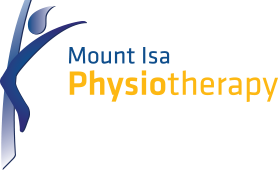Whiplash
Whiplash, simply said, is an injury to the neck. In whiplash, the intervertebral joints that are located between vertebrae, discs and ligaments, cervical muscles, and nerve roots have possibilities of being damaged.
A whiplash neck sprain occurs when the head is suddenly jolted backward and forward in a whip-like movement, especially in the case of rear-end collisions in motor vehicles. These movements, which generate a substantial amount of force on the neck, cause it to move far beyond its normal range and seriously damage the intricate and delicate structures of the neck.
Whiplash can also be termed as a sprain of the joints in the neck, which Physiotherapists refer to as vertebral dysfunction. It doesn’t require a motor vehicle collision for this condition to develop, as it can also be caused by forceful injuries that can impact the neck joints, ligaments, muscles, and discs. A sudden jolt on the neck because of trips and falls can also cause this condition.
Common symptoms of Whiplash
Symptoms might vary in each person, but the most frequent include:
• Pain in the neck region
• The head feels too heavy for the neck
• Reduced/tight neck movement
• Stiffness of the neck
• Pain on the shoulders and arms
• Tingling sensation in arms and fingers
• Dizziness, headache, blurred vision, and pain while swallowing
• Irritability and difficulty in concentrating
How can Whiplash be treated?
There are plenty of methods to treat and manage the condition of whiplash. Among them, physiotherapy has proven to be the most fruitful one. When it comes to physiotherapy, a thorough study on the patient’s medical history and orthopedic, neurological and spinal examinations are done to determine the cause and treatment. It can be different for people based on different criteria.
When it comes to physiotherapy, the aim will be to reduce pain and inflammation, stabilize the neck and prevent further damage. Ice treatment can also be one of the best remedies.
If it is about providing support to the head and neck, it becomes a matter of great importance to keep the neck mobile in a soft cervical collar. Regular neck exercises, and active movements, as suggested by a physiotherapist, have had a strong track record of fast recovery as opposed to resting it for long periods of time.
When the pain decreases and the stability of the neck improves, gentle massage of the spine by a physiotherapist will help to improve neck functions and reduce nerve pressure. Postural advice plays a key role in preventing the occurrence of such conditions in the future.
Sleeping postures play a major role as well. In this case, contoured pillows with a design that adapts to the head, neck, and shoulder contour for back and side sleepers can make a big difference.
With a strong record of healing and cure, Mount Isa Physiotherapy has experienced and expert physiotherapists, the best techniques for treatment, and an expert crew under its belt to help people suffering from whiplash. Contact us now to book an appointment.

